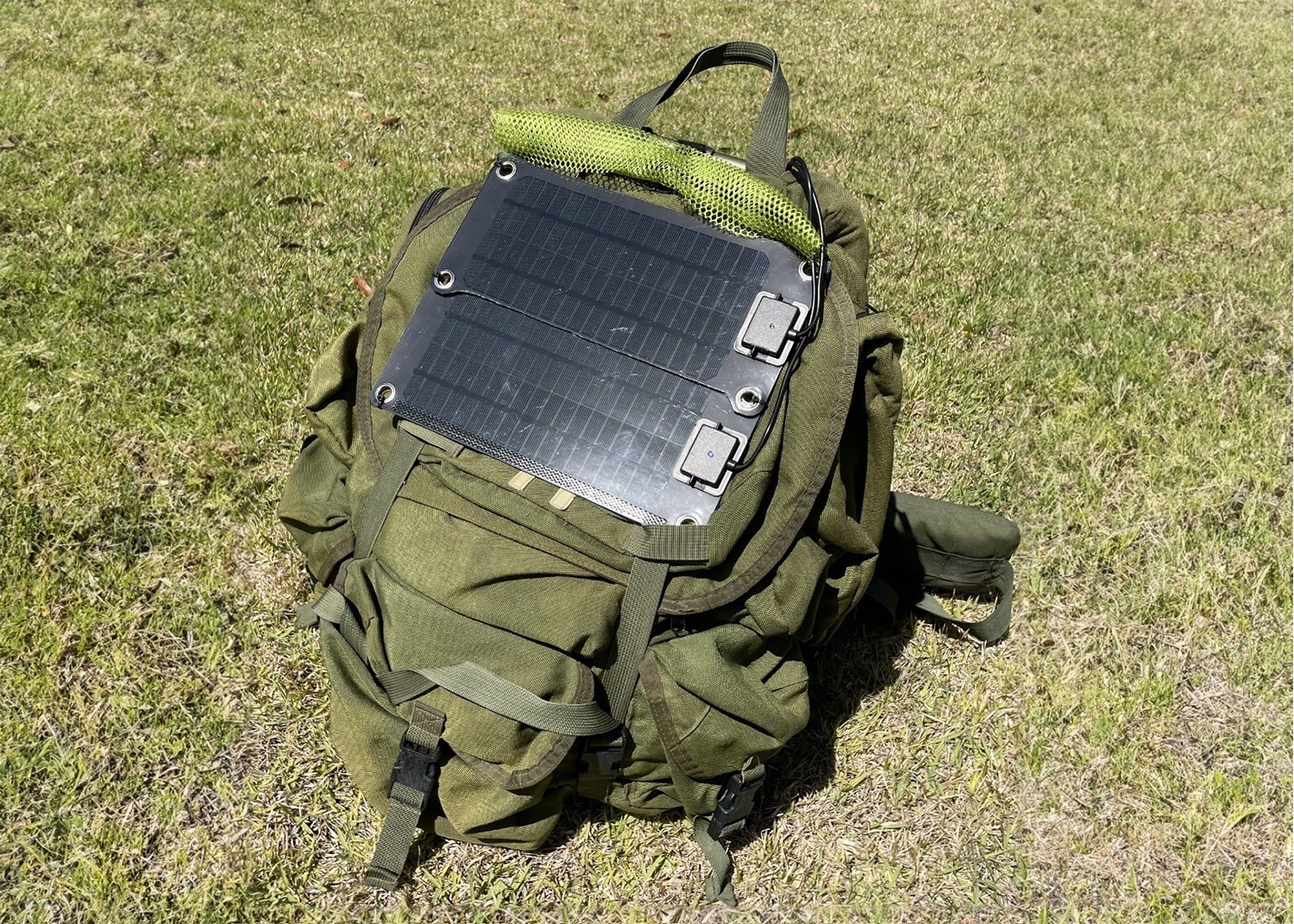A group of undergraduate electrical engineering students from the University of West Florida’s Emerald Coast campus in Fort Walton Beach created an innovative battery charging system for soldiers training and operating in jungle conditions. The concept arose during a discussion with the 7th Special Forces Group Innovations team of the United States Army.

Image Credit: University of West Florida
Members of the military approached Dr. Thomas Gilbar, chair and lecturer for electrical and computer engineering at UWF on the Emerald Coast, earlier this year to discuss some of the unit’s issues and cooperate with engineering students on novel solutions.
Students were tasked with devising a more efficient means of charging batteries for the electronic systems carried by troops in their rucksacks. The military is looking for methods to reduce the weight of soldiers’ rucksacks as they traverse the forest. Student Eamon Anderson, a former member of the 7th Special Forces Group, has firsthand knowledge of the project’s subject matter.
Having been in the unit, I knew that carrying excess batteries is always a challenge. As you add extra weight to rucksacks, a lot more planning goes into how long it will take soldiers to maneuver around. The extra weight in rucksacks also contributes to short and long-term injuries.
Eamon Anderson, Student, University of West Florida
Anderson, together with students Daniel Buraczynski and Paul Ruth, collaborated with their faculty mentor Dr. Jeff McGuirk over the Fall 2022 and Spring 2023 semesters to design an innovative method that lowered battery charging time, prolonged battery life and reduced total backpack weight. The technology charges the systems by utilizing the soldiers’ movements as they trek through the forest.
At UWF, we strive to work with local industry and our military bases to bring these types of real-world problems to our students. They are mutually beneficial: The real-world problems help to prepare our students for a successful career when they graduate as well as give our local partners access to new, fresh engineers and their creative thinking.
Dr. Thomas Gilbar, Chair and Lecturer, Electrical and Computer Engineering, University of West Florida
The 7th Special Forces Group eagerly embraced the system. The student team, who recently finished their Bachelor of Science in Electrical Engineering degrees, is presently modifying before it goes through Army range testing.
Anderson stated that the experience prepared him for professional endeavors.
He concluded, “In the engineering program, we learn things in blocks as we move through the courses. The project allowed us to encompass the full scope of our learning at UWF and see how it all comes together.”
Source: http://uwf.edu/